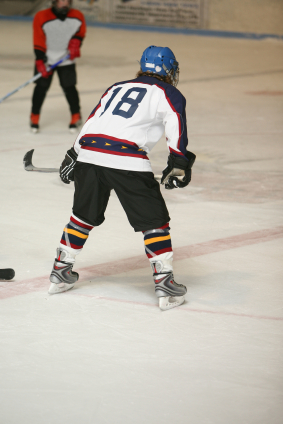As I watch the Stanley Cup playoffs I am reminded each spring about the ever-changing rules in hockey: One set for the regular season, and one set for playoffs. Or should I say one rule book and two or more interpretations of the enforcement of the rules in the book. Clearly there is much more leeway from the rule book during the playoffs. Players tripped on breakaways do not draw a penalty. Obvious rule violations are ignored. But lets be clear about the NHL: the league is an entertainment business that happens to play hockey. Fans like the brutality and violence. It sells tickets so it is allowed to happen.

This spring the National Federation of High School Associations has tightened the rules in high school hockey regarding checking from behind and blind-side hits.They also want to penalize a player if "in the opinion of the referee" there is embellishment or movement that was intended to draw the penalty. This all sounds great, but how in the world do they expect the on-ice officials to do this when they currently are unable and or unwilling to call rules that have been on the books for decades?
Are the rules the issue? No. At issue is the lack of training, certification, education and compensation for on-ice officials. In Minnesota there are very few requirements to officiate at the high school level. The rules test is an open book exam. There is little or no evaluation. There are too many games and too few officials. As a result there are many unqualified officials. The fault lies with the NFHS and their lack of training and evaluation of officials.
If the NFHS was serious about preventing serious injuries they would develop a program that trains and certifies officials. The rule book is adequate. Application of the rules is the problem. New rules which include call for subtle interpretation and judgment calls by individuals who have already demonstrated they lack that ability will not work.



















